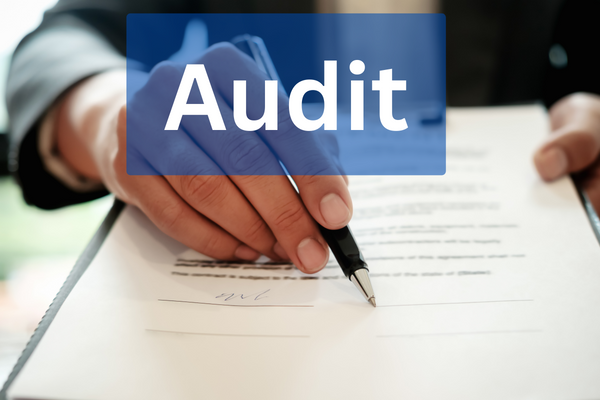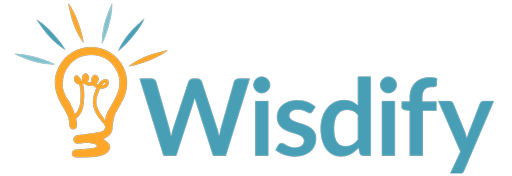I, like most of you, spend time looking through Reddit subs and other forums and one question that comes up frequently is how to think about tax vs audit. I have 20 years in finance and accounting roles all the way up to the CFO level and have another 5 years of helping to train accountants and finance professionals through Wisdify.
Today I thought I would share some insights on a choice many of you might be facing early in your career: tax or audit. With my experience, I have 20 years of experience and have seen (and hired) people that spent time on these two career paths.
So, whether you’re on the brink of finishing your college career or you’re in the early years of your accounting journey, let’s dive into the world of tax vs audit through my lens.
Working in public accounting, especially within the Big 4 firms (Deloitte, PwC, Ernst & Young, and KPMG), offers a wide range of career paths, with our focus today on tax and audit professionals being two of the primary roles.
Each path has its own set of roles, responsibilities, career trajectories, and lifestyle implications. I’m going to start with the highlights, then I will get into some information on the differences between tax and audit professionals in terms of:
- roles and responsibilities
- exit opportunities
- salaries
- work-life balance
- career path
I will then wrap up with how to think about choosing between the worlds of tax and audit professionals!
TLDR The highlights : Tax vs Audit
The Audit Trail
Audit, especially when graced with Big4 experience, leads to a bigger trove of exit opportunities particularly jumping out of public accounting firm and into private/industry accounting roles.

These private roles come with the promise of more reasonable hours (a big plus here for those seeing better work life balance).
What makes audit especially appealing to potential employers is the versatility. The skills you hone as audit professionals have skills that align with those of accounting managers, controllers, internal audit managers, and even roles more on the finance or FP&A side.
It’s really about the foundational skills you develop. Audit teaches you to look at a organization’s financial statements with a critical eye, to understand the intricacies of financial operations, combined with requiring the ability to communicate complex information in an understandable way (often to a client). These are skills are invaluable and can propel you forward in many finance-related career paths.
The Tax Path
On the other side, the world of tax is a bit more niche but no less fascinating. Tax careers are predominantly found within public accounting firms, and while the exit opportunities might seem more limited compared to audit, they are by no means nonexistent.
In fact, tax accountants often enjoy higher salaries right out of the gate, not to mention the field is less competitive at the entry level. Let’s be honest, not many kids daydream about becoming tax accountants, but perhaps they should!

Tax is a field that demands deep specialization, offering the chance to become a true expert in your domain. The rhythm of work in tax is also unique; it’s incredibly busy from January through March/April due to filing deadlines, but then it quiets down significantly.
This seasonal intensity can be both a challenge and an opportunity, allowing for periods of hard work followed by times when you can catch your breath, recharge, and pursue personal interests or professional development.
It really depends on what you prefer.
TLDR Summary
Whether you’re drawn to the dynamic and versatile world of audit or the specialized, deep-dive nature of tax, both paths offer rewarding careers in finance. As someone who’s watched many professionals navigate these roads, I can attest that success lies not just in the choice itself but in how you leverage the opportunities and experiences each path provides.
Remember, your career is a marathon, not a sprint. The skills you develop, the experiences you accumulate, and the networks you build will all contribute to your professional story. So, choose the path that resonates with your interests and career aspirations, but stay open to the twists and turns your journey might take. Here’s to making informed decisions and embracing the adventures that lie ahead in the world of finance!
Comparisons between Tax vs. Audit
Tax Accounting: Roles and Responsibilities
Tax Compliance
- Preparing and Reviewing Tax Returns: Early years in tax will play a key role in tax preparation … this will involve preparing federal, state, and, in some cases, international tax returns for clients. This includes gathering and analyzing financial statements information, applying tax laws, and ensuring accuracy and compliance.
- Filing Deadline Compliance: You will be ensuring all tax documentation is accurately completed and submitted by the required deadlines to avoid penalties
Basic Tax Planning
- Identifying Tax Savings: Assisting in identifying opportunities for tax savings and efficient tax planning based on current tax laws and regulations. This is fairly basic in the early years
- Client Consultation: Providing basic advice to clients on tax matters, including the implications of certain transactions or changes in business structure.
Basic Tax Planning
- Staying Informed: Keeping up-to-date with changes in tax legislation and regulations, which can impact clients. This involves a significant amount of research.
- Interpreting Tax Laws: Learning to interpret and apply complex tax laws and regulations to a variety of client situations.
Documentation and Reporting
- As with almost everything in public accounting, prepare to spend an inordinate amount of time on documentation and reporting …
- Documentation: Maintaining detailed and organized records of tax calculations, returns, and related documents.
- Tax Provision Calculations: Assisting in the calculation of tax provisions for financial reporting purposes.
Client Interaction, Professional Development, and Team Collaboration
While less a function of the work itself, these three items are (or can be) a big part of your day to day life within tax
- Communicating with Clients: You spend a lot of time talking to your clients and need to (should be) develop the communication skills needed to effectively interact with clients, gather financial information you need to do your job, and discuss questions and various topics with the client.
- Building Client Relationships: In the early years you definitely need to quickly build relationships (to get what you need and make your job easier!). Showing the ability to do this can help with getting promoted down the line.
- Training and Learning: Big 4 firms provide extensive training in tax laws, software, and firm-specific methodologies. Early years are a critical time for learning and professional development.
- Specialization: Over time, tax accountants may start identifying areas of interest for specialization, such as international tax, state and local tax (SALT), transfer pricing, or tax technology.
- Collaborating with Team Members: Working as part of a tax team, sharing knowledge, and supporting other team members (as well as the client) are all regularly requirements.
- Internal Projects: You may get pulled into, or have the ‘opportunity’ to (depending on how you look at it) contribute to internal projects that improve the tax department’s efficiency and service offerings.
Audit: Roles and Responsibilities
In your first few years you will typically be referred to as an associate, these roles and responsibilities are focused more around those early years! Audit can be broad, but usually is referring to external auditing, but there could be internal auditing assignments as well.
Audit Planning and Execution
The foundation of an audit is the audit planning. As an associate you will participate in the planning phase of audits, which includes understanding the client’s business environment and operations (financial and actual operations), assessing risk, assessing controls, and determining the audit scope.
Fieldwork
As an associate you will perform the audit fieldwork/procedures under the guidance of senior auditors/managers. This involves actually testing financial statement line items through various methods of testing (typically, this is not ‘from scratch’ as most clients have been clients for years and you dust off last years audit (insert SALY joke here … Same As Last Year!). Even if you have a new client, you probably have a client in a similar industry and you can use that companies test work as a blueprint.
This will include a full review of financial statements (with particularly focus on the balance sheet and income statement.
Internal Controls Testing
Part of their role is to test and assess the effectiveness of a client’s internal controls over financial reporting. This includes evaluating control design and operating effectiveness. What this means is … your client has controls in place, you are testing to see if those controls are adequate and ensure compliance.
Client Interaction, Professional Development, and Team Collaboration
Very similar to tax, these are all a big part of the role.
Auditors maybe more so than others, are responsible for thorough documentation of their work and findings in workpapers, which are reviewed by senior staff. Documentation must be clear, concise, and comply with audit standards.
Although limited compared to more senior roles, junior auditors begin to interact with client personnel to gather information for better understanding, perform testing, discuss findings, and more.
As an associate, you will work closely with other members of the audit team, contributing to the audit process and meeting project timelines. Collaboration and effective communication within the team are expected.
There will also be a professional development piece of this with training. The Big 4 especially prides itself as a training ground with both experiential learning and dedicated development.
Exit Opportunities Tax vs. Audit
Tax Exit Opportunities
Typically in tax you are setting yourself up for a bit more of a specific career path…
- Specialized knowledge in tax can lead to opportunities in corporate tax departments, tax consulting firms, and government agencies like the Internal Revenue Service (IRS).
- Tax professionals can also transition into roles focusing on tax strategy for corporations, non-profits, or government entities.
Audit Exit Opportunities
Audit gets the “win’ on exit opportunities from a breadth perspective! If you are not interested in a career in tax, audit is going to give you a much wider array of potential landing spots after your public accounting days are through.
- Audit experience is highly valued in various industries, providing a pathway to positions in internal audit, financial reporting, and compliance within corporations.
- The audit experience has much more hands in different elements of the business and the actual operations and financial processes of the business.
- Usually an auditor will spend time at multiple clients which also gives experience with different business models and gives them a unique perspective to see when things are done well vs. poorly… and helps to position them to bring that perspective into their next job.
- I have seen audit professionals land in different roles within the Big4 (or other large accounting firms) like consulting, Transaction Services/M&A. I have seen them move into industry jobs as accounting managers, controllers, and eventually to CAO or CFO. Many also make a jump to the more ‘finance’ side of things into business partner roles and FP&A roles!
Salary Comparison
- Entry-Level: Initially, salaries for both tax and audit roles are relatively similar, but this can vary based on location, firm size, and specialization. Tax is probably slightly ahead of audit early on due to the specialization of tax.The last numbers I saw for the US in 2023 was $69,000 for staff level, I expect given the shortage of accountants that number is over $70,000 in 2024. It can vary on geography as well.
Work-Life Balance Comparison
Both of these roles are not ‘easy’ and typically they are a little more of a burnout job in a sort of ‘up or out’ culture. The busy season can be a bit more daunting in tax, but audit has it’s own busy times as well.
- Tax: Workload is heavily influenced by tax season, leading to a cyclical pattern of busy and slow periods. Tax professionals often experience long hours during tax season (early January to April).
- Audit: Auditors can also face long hours, especially during the end of fiscal periods and the annual audit season. However, the audit workload is slightly more evenly distributed throughout the year compared to tax. Auditing may also require more travel than tax. Depending on your personal situation and preference this could be a pro or a con!
Career Path Comparison
- Tax: Career progression can lead to roles such as Tax Manager, Senior Tax Manager, and Tax Partner, with opportunities to specialize in niche areas.
- Audit: Auditors can advance to Audit Manager, Senior Manager, and Partner levels, with a broad understanding of various industries and businesses.
How to Choose Between the Two
- Interest and Skill Set: Consider whether you’re more interested in the legal and strategic aspects of tax or the financial and operational aspects of auditing. If you aren’t interested specifically in tax, audit is probably the way to go.
- Lifestyle Preferences: Reflect on your tolerance for busy seasons and preference for a more predictable schedule. The other thing to note here is that in tax, it is harder to leave tax for another field and you may always be tied to that busy season! Whereas, many leave audit (though they may very well remain tied to a closing or financial schedule).
- Career Goals: Think about where you see yourself in the future and which path aligns more closely with your long-term career aspirations.
- Personality Fit: Audit roles often require more client interaction and teamwork, while tax positions might offer more independent work and less client facing.
Conclusion
Ultimately, as with most things, it boils down to what you want as an individual! Both paths offer rewarding careers with good compensation (though maybe not the best work life balance). But these are both very good launch pads for future professional growth, financial success, and opportunities to transition into roles within and outside of public accounting.



